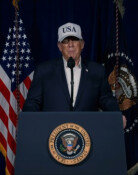[Op-Ed] The Power of Reading Newspapers
[Op-Ed] The Power of Reading Newspapers
Posted April. 06, 2009 08:02,
Interest in media education is growing. The subject is divided into two areas. The first is raising understanding of media. The rise of new forms of media has brought on adverse effects such as inundation by media and data recipients being at a loss of where they should turn to. When recipients know the characteristics of media and the way to use them first, they will fend off falsehoods and choose accurate information. A case in point is educating people not to be deceived by distorted broadcasts such as one on U.S. beef by the MBC investigative program PD Notebook.
The second area is utilizing media in school education. Media is a window to the world, and by using media, teachers can help students understand the world. Newspapers stand out for their educational value. The New York Times has been used as materials in school education from the 1930s. When social studies teachers in New York requested that the daily regularly deliver copies to schools, education through newspapers began. France is set to incorporate newspaper reading in school education in a trial basis.
A New York University study in 1991 showed that students who took newspaper reading classes had a higher level of scholastic performance than those who did not. A wealth of research shows that reading newspapers boosts reading comprehension, the ability to choose good information, and communication capability. TV watchers turn into passive recipients of data who accept messages delivered by TV screens the more they watch the tube. On the contrary, more newspaper reading stimulates brain activity. As more people shun written materials, newspaper reading is emerging as an educational alternative.
The Culture, Sports and Tourism Ministry seeks to deliver daily newspapers to 110,000 classes in middle and high schools nationwide. Though the plan is in the right direction, fears are rising that left-leaning teachers will take advantage of newspaper education. Rather than fostering a balanced global outlook, they could propagate the viewpoints of certain newspapers. To prevent this, education to foster the ability to tell the right information from wrong should be conducted side by side. A more sophisticated approach is needed in the process of implementation.
Editorial Writer Hong Chan-sik (chansik@donga.com)



![[단독]폴란드, 韓 해군 최초 잠수함 ‘장보고함’ 무상 양도 안받기로](https://dimg.donga.com/c/138/175/90/1/wps/NEWS/IMAGE/2026/02/27/133437397.1.jpg)


![“‘표심’ 따라 이란 친 트럼프…지독하게 변덕스럽지만 치밀해” [트럼피디아] 〈60〉](https://dimg.donga.com/c/138/175/90/1/wps/NEWS/IMAGE/2026/03/01/133441726.1.jpg)
